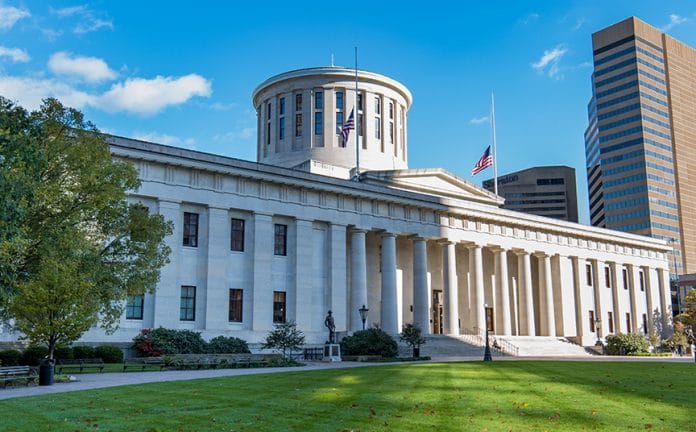
Ohio voters just finished casting their ballots in May for the 2022 primaries. However, in an unprecedented event for the Buckeye State, voters will be asked to return to the polls for a second primary election on Tuesday, Aug. 2.
Unlike in May, where voters primarily nominated candidates for federal and statewide offices, the August primary will feature elections for the Statehouse, Ohio Senate and State Central Committee.
Military and overseas absentee voting for the August primary began on June 17.
Voter registration deadline is July 5. In-person early voting begins the next day and will include the Saturday, Sunday and Monday before primary Election Day. Absentee voting by mail begins July 6.
Polls will be open from 6:30 a.m.-7:30 p.m. on primary Election Day.
“I think it probably is confusing,” said Kathie Gaige, chairwoman of voter services at the League of Women Voters of Greater Youngstown. “I don’t remember a time in my life where there have been two primary elections. There’s probably lower than average voter awareness.”
The confusion over this year’s elections has been a long time in the making.
In accordance with the decennial census, the Ohio Legislature and the Ohio Redistricting Committee drew several different maps as part of the legislative redistricting process. “Each of these maps was challenged before the Ohio Supreme Court, and each time the court found that the maps overly favored the Republican Party,” said Paul Sracic, chairman of Youngstown State University’s department of politics and international relations.
In May, a federal court ordered the state to use the third of five previously rejected maps. The prolonged process caused the state to split up the primary season, which has advantaged incumbents and resulted in many races where candidates are running unopposed, said Thomas Sutton, professor of political science at Baldwin Wallace University.
“The opponents had to keep waiting to be able to start a campaign to raise money and raise their profiles. It got to the point that for a lot of them it was too late, or the way the lines were drawn, they weren’t eligible to run,” Sutton said.
The new maps shouldn’t result in many changes for Valley voters, according to representatives from the boards of election in Mahoning and Trumbull counties. “The changes here weren’t as dramatic,” said Melissa Wasko, Mahoning County Board of Elections deputy director.
Stephanie Penrose, director of the Trumbull County Board of Elections, echoed those sentiments. “What used to be the 63rd District is now the 64th, and what used to be the 64th is now the 65th. That’s probably going to be the most confusing thing.”
Voters unsure of which district they reside in can visit findmydistrict.ohiosos.gov….
Mahoning County plans on running commercials about the second primary during the last two weeks of July. The county saw an increase in turnout after running advertisements a week prior to the May primary, Wasko said.
About 23 percent of eligible voters in Mahoning County cast their ballots in the May primary. Due to the number of uncontested races, Wasko estimates that turnout in August might be closer to 10 percent. Penrose said she expects turnout of around 15 percent in Trumbull County.
Despite the lower expectations for turnout, Sutton emphasized the importance of the races. “The General Assembly passes the laws of the state of Ohio that get signed or not by the governor. And one of those laws was the ‘heartbeat’ bill, which bans abortions after six weeks.”
He added that the new district maps, which are still deemed unconstitutional, will be used until at least next year. “At this point, these maps are only good for two years, according to the federal decision.”
The election is projected cost the state at least $22 million, Sutton said. Penrose added that just the cost of hiring and training poll workers in Trumbull County amounts to approximately $100,000.
On June 28, Ohio Gov. Mike DeWine signed House Bill 377, which provides grants to counties to offset the costs of holding another primary election.
This should cover Mahoning County’s expenses, according to Wasko. “We’re thankful here in Mahoning County that we’ll probably going to be able to pay for our entire election with our grant money.”
***
Metro Monthly is a local news and events magazine based in Youngstown, Ohio. We circulate throughout the Mahoning Valley and offer print and online editions. Be sure to visit our publication’s website for news, features and community events. Office: 330-259-0435.
© 2022 Metro Monthly. All rights reserved.






